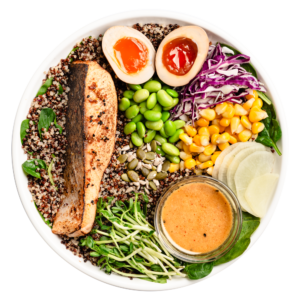In today’s world, where sugary treats seem to be around every corner, adopting a no sugar diet might sound like an extreme measure. However, the benefits of cutting out sugar from your diet extend far beyond just weight loss. From improved energy levels to better mood and enhanced overall health, going sugar-free can lead to a multitude of positive changes in your life.
Understanding the No Sugar Diet
Before delving into the benefits, it’s essential to understand what a no sugar diet entails. Simply put, it involves eliminating added sugars from your meals and snacks while focusing on whole, unprocessed foods. This means saying goodbye to sugary beverages, candies, pastries, and processed snacks that are laden with hidden sugars.
Benefits of a No Sugar Diet
1. Weight Management
One of the most apparent benefits of having a sugar-free diet is weight loss. Sugary foods and beverages are high in calories but offer little to no nutritional value. By eliminating these empty calories from your diet, you can create a calorie deficit, which is essential for shedding excess pounds. Moreover, sugar consumption is linked to increased belly fat, and reducing sugar intake can help trim your waistline and improve body composition.
2. Stable Energy Levels
While sugar might provide a quick energy boost, it often leads to energy crashes shortly afterward. This rollercoaster effect can leave you feeling tired, irritable, and craving more sugar to regain energy. By switching to a no sugar diet, you can stabilize your blood sugar levels, leading to more consistent energy throughout the day. You’ll experience fewer energy dips and rely on more sustainable sources of fuel, such as complex carbohydrates and healthy fats.
3. Improved Mental Clarity
Excessive sugar consumption has been linked to cognitive decline and impaired brain function. By practicing a sugar-free lifestyle, you can enhance mental clarity, focus, and concentration. Many people report experiencing heightened cognitive function and improved mood once they eliminate sugar from their diet. This clarity of mind can positively impact productivity, decision-making, and overall cognitive performance.
4. Enhanced Skin Health
Sugar consumption has been associated with various skin issues, including acne, premature aging, and dullness. When you consume sugar, it can lead to inflammation in the body, which may manifest as skin problems. By eliminating sugar, you can reduce inflammation and promote clearer, healthier-looking skin. Additionally, a diet rich in whole foods provides essential nutrients and antioxidants that support skin health from within.
5. Better Heart Health
Excessive sugar intake is linked to an increased risk of heart disease, including high blood pressure, elevated cholesterol levels, and insulin resistance. By adopting a no sugar diet, you can lower your risk factors for cardiovascular disease and improve heart health. Furthermore, reducing sugar consumption can lead to better blood sugar control, which is crucial for preventing diabetes and maintaining overall metabolic health.
6. Reduced Risk of Chronic Diseases
A diet high in sugar has been implicated in the development of various chronic diseases, including type 2 diabetes, cancer, and Alzheimer’s disease. By cutting out sugar, you can lower your risk of these debilitating conditions and promote long-term health and longevity. Embracing a no sugar diet can help you take control of your health and reduce your susceptibility to chronic diseases.
Tips for Success
Transitioning to a no sugar diet may seem daunting at first, but with the right approach, it can be both achievable and enjoyable. Here are some tips to help you succeed:
– Read food labels carefully and avoid products with added sugars.
– Focus on whole, nutrient-dense foods such as fruits, vegetables, lean proteins, and whole grains.
– Experiment with natural sweeteners such as stevia, monk fruit, or erythritol as alternatives to refined sugar.
– Stay hydrated by drinking plenty of water throughout the day.
– Plan and prepare your meals in advance to avoid succumbing to sugary temptations when hunger strikes.
While cutting out sugar from your diet may require some effort and commitment, the benefits far outweigh the challenges. From weight loss and stable energy levels to improved mental clarity and better heart health, a no sugar diet can transform your health and well-being in profound ways. By making conscious choices to prioritize whole, nutrient-rich foods over sugary treats, you can embark on a journey toward a healthier, happier life. Interested in changing your perspective about sugars? Start here – SaladStop!’s 21 day No Sugar Challege!




